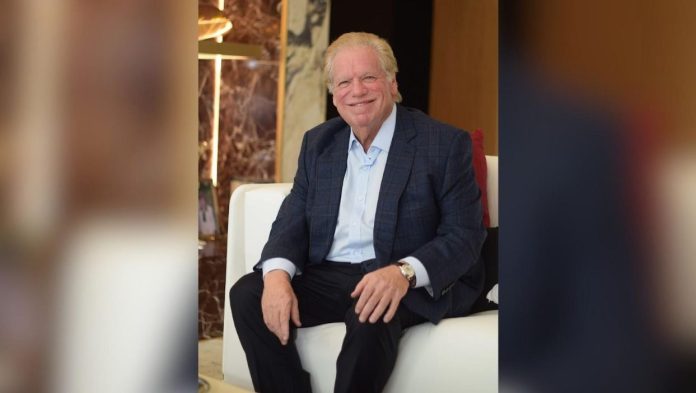Elliott Broidy is an entrepreneur who has used his extensive experience and talent to found, invest in, and in some cases, manage as CEO, more than 160 companies over his four-decade career. Since 2014, he has focused on technology businesses (including, more recently, AI) in the defense intelligence, homeland security, public safety, and law enforcement sectors. He is the Chairman and CEO of Broidy Capital Holdings, LLC, founded in 2022 in Boca Raton, FL, and its predecessor, Broidy Capital Management, headquartered in Los Angeles from 1991 to 2022.
Q: Your investment career spans more than four decades. How has your approach to evaluating opportunities evolved over time?
Elliott Broidy: My evaluation process has evolved significantly over the years. When I first started, I was primarily focused on traditional metrics like market size and growth potential. Those elements still matter, of course, but experience has taught me to look more deeply at three critical factors.
First, I examine whether the technology meaningfully enhances human capabilities rather than trying to replace them entirely. Second, I assess how flexible the solution is—can it adapt to emerging threats and changing operational needs? And third, perhaps most importantly, I analyze whether the team understands both the technical and operational aspects of their solution.
I’ve found that the most successful investments come from teams that deeply understand the day-to-day realities of their end users, not just the technology they’re developing.
Q: Since 2014, you’ve focused primarily on technology businesses in defense, intelligence, and public safety. What drew you to these sectors specifically?
Elliott Broidy: The catalyst was 9/11. That event fundamentally changed my priorities, my interests, and where I felt I had to direct my businesses and attention. I felt a calling to dedicate all of my skills, resources, and energy toward the public safety, defense, and security industries.
I found myself profoundly motivated in those dark days to protect not only the United States but our allies. Since that time, that has been my professional focus. I believe these sectors represent not just business opportunities but areas where investment can make a meaningful difference in protecting lives and strengthening our communities.
Q: How do you balance innovation with practical implementation when evaluating security solutions?
Elliott Broidy: The truth is, the most innovative solution isn’t always the most effective one. I’ve learned that successful implementation often comes down to understanding the operational environment where the technology will be used.
I always tell my teams that a slightly less sophisticated solution that works seamlessly within existing systems is far more valuable than a cutting-edge technology that creates operational friction. It’s about finding the sweet spot between pushing technological boundaries and ensuring practical, day-to-day usability.
Q: What role do you see AI playing in investment opportunities, particularly in defense and public safety?
Elliott Broidy: AI’s potential in defense and public safety goes far beyond what most people imagine. The real power lies not in replacing human judgment, but in enhancing our ability to process and understand vast amounts of information in real time.
For instance, when analyzing large datasets, AI can quickly identify patterns and anomalies that would take human analysts weeks or months to discover. But the key is maintaining the right balance—AI should augment human expertise, not attempt to replace it. This means developing systems that provide actionable insights while leaving critical decision-making in human hands.
Q: How do you determine if a founding team has what it takes to succeed?
Elliott Broidy: I look for teams that combine technical innovators with people who have deep operational experience in the field. The most successful ventures I’ve seen have founders who understand both the technology and the real-world environment in which it will be deployed.
I also assess their resilience. Success doesn’t come without setbacks, for anybody, in any field. But it’s about the mindset with which you confront it. Do you let the setbacks define you, or do you perceive them as opportunities to grow and to thrive?
It’s also important to evaluate whether founders can delegate effectively. Highly ambitious and highly driven people often have difficulty doing this. They want to do it all. But you can’t, it’s simply not possible, and you will burn out if you try. Assembling a team that you can trust, and then delegating to that team, is essential for long-term success.
Q: Looking ahead, which emerging technologies or trends do you find most promising for investment?
Elliott Broidy: We’re entering an incredibly dynamic period in defense technology investment. The pace of technological change continues to accelerate, and we’re seeing new threats emerge that require innovative solutions.
Generative AI is moving fast—and it’s reshaping industries at every level. Quantum computing is transitioning from theory to real-world use cases. We’re on the edge of breakthroughs that could unlock processing power beyond anything we’ve seen.
But regardless of the specific technology, the key to success will be maintaining focus on real-world impact rather than just technological advancement. The most effective investments will be those that enhance existing capabilities while enabling new ones, always with an eye toward actual operational needs. The companies that succeed will be those that can adapt quickly to emerging threats while maintaining the reliability and integration capabilities that this sector demands.



 Bitcoin
Bitcoin  Ethereum
Ethereum  Tether
Tether  XRP
XRP  USDC
USDC  Solana
Solana  Lido Staked Ether
Lido Staked Ether  TRON
TRON  Cardano
Cardano  Avalanche
Avalanche  Toncoin
Toncoin